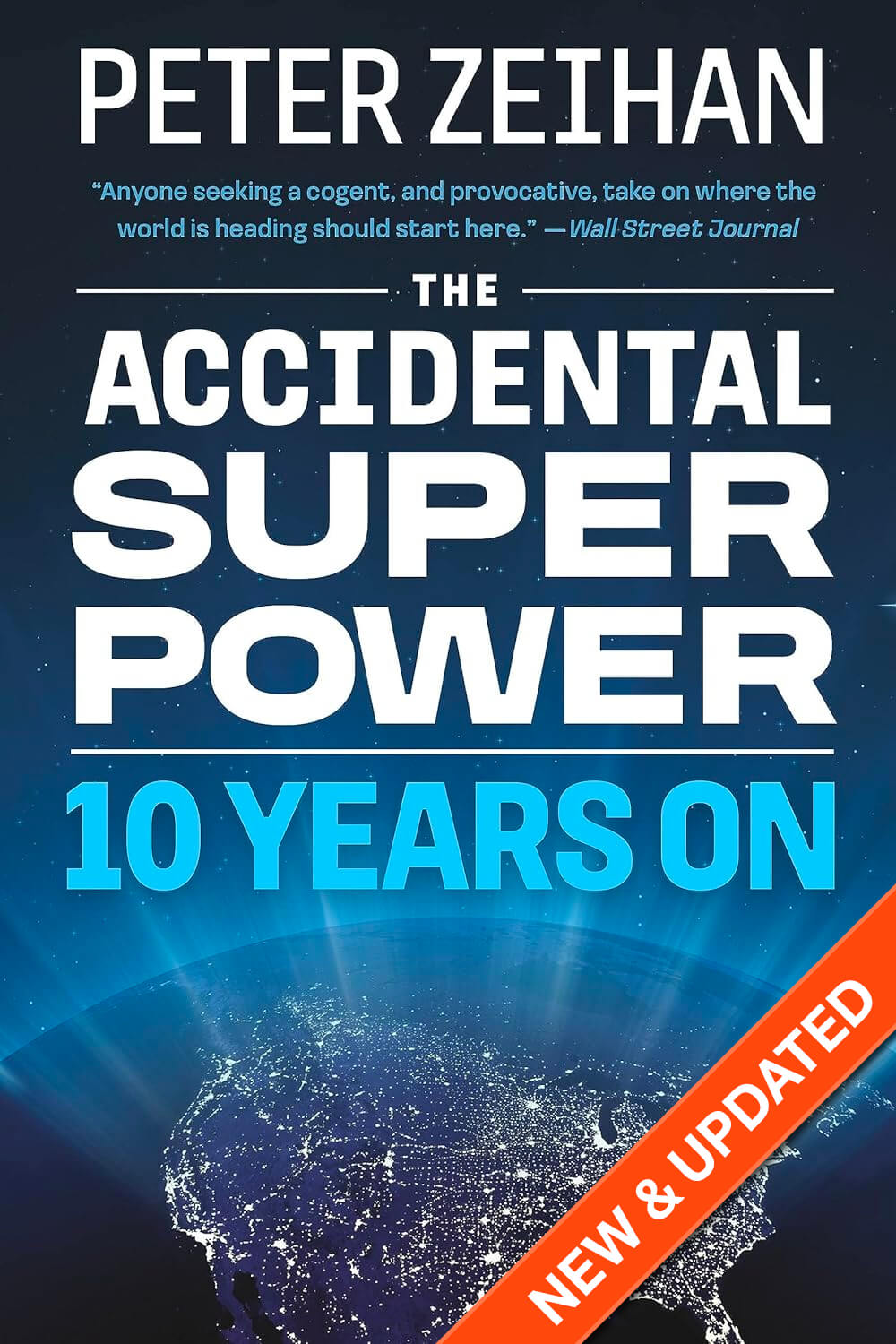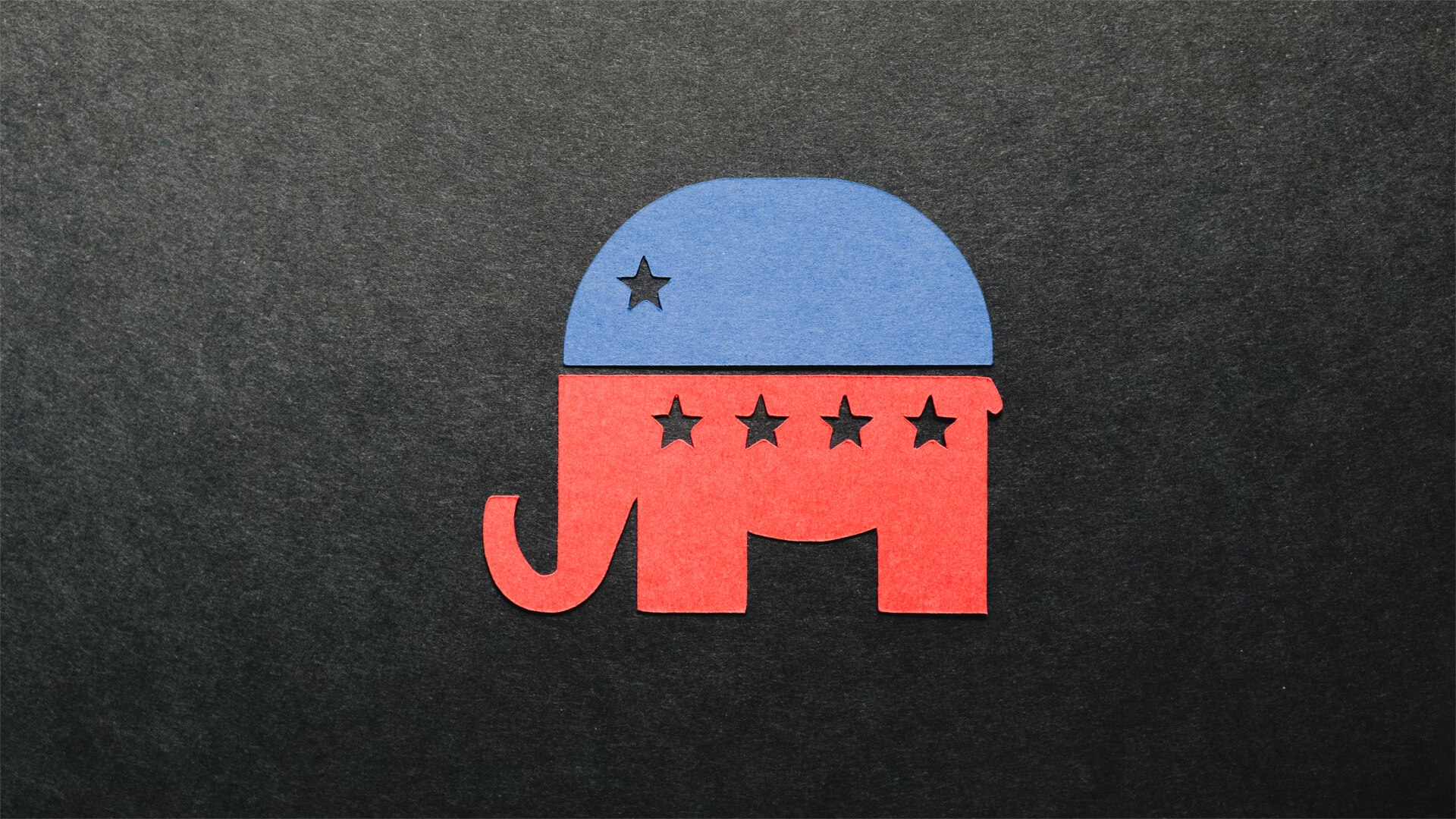
The Accidental Superpower: Ten Years On
With a new “10 years later” epilogue for every chapter, comes an eye-opening assessment of American power and deglobalization in the bestselling tradition of The World is Flat and The Next 100 Years.
If you watched yesterday’s video, then you already know that Donald Trump has no shot at winning the general election (assuming he’s not DQ’d or in jail). Today, we’re looking at WHY Trump can’t get elected.
The US electoral system encourages two big-tent parties, comprised of various factions that rise and fall throughout the years. What the Republicans lack in numbers, they make up for in consistency and lack of conflict in the party (at least, they used to). The Democrats have the numbers but are incredibly inconsistent at the polls, and they fight like teenagers amid the “big change.”
Trump has introduced some unprecedented conflict into the Republican Party, and we’re seeing internal divisions among factions that have been historically aligned. With this Democratic-style conflict filtering its way through the Republican Party, the numbers just won’t work for Trump…and that’s before we even discuss independent voters.
Here at Zeihan On Geopolitics we select a single charity to sponsor. We have two criteria:
First, we look across the world and use our skill sets to identify where the needs are most acute. Second, we look for an institution with preexisting networks for both materials gathering and aid distribution. That way we know every cent of our donation is not simply going directly to where help is needed most, but our donations serve as a force multiplier for a system already in existence. Then we give what we can.
Today, our chosen charity is a group called Medshare, which provides emergency medical services to communities in need, with a very heavy emphasis on locations facing acute crises. Medshare operates right in the thick of it. Until future notice, every cent we earn from every book we sell in every format through every retailer is going to Medshare’s Ukraine fund.
And then there’s you.
Our newsletters and videologues are not only free, they will always be free. We also will never share your contact information with anyone. All we ask is that if you find one of our releases in any way useful, that you make a donation to Medshare. Over one third of Ukraine’s pre-war population has either been forced from their homes, kidnapped and shipped to Russia, or is trying to survive in occupied lands. This is our way to help who we can. Please, join us.
TranscripT
Hey everybody. Peter Zeihan here coming to you from the winter wonderland that is snowy Colorado. Today we’re talking about why Donald Trump has no chance of winning the general election, assuming he’s not disqualified, assuming that he’s not in jail. Okay, So you have to look at the way our electoral system works. We have a first past the post single member district system, which is a fancy way of saying that you vote for one person who is representing a very distinct geographic area.
It’s not like the Netherlands where you vote for a party. You’re voting for one specific person. And what that does is it encourages our parties to further to only be two of them and for them to be very big tent parties because they need to get that marginal vote more than whoever is running on the other side. It’s all about numbers of votes.
That’s one of the reasons why whenever we do get a third or fourth party that never lasts for more than one or two political cycles and then other parties fall out, we go back to the two. I’m not saying that can’t happen this time around, but we’re getting really late in the day for it to affect this election.
Maybe the next one. Anyway, first past the post. So if you’re going to have a big tent party, that means you’re going to have a lot of power centers, a lot of factions within each party, and those factions are going to rise and fall in political power as technology and geopolitics and social issues evolve. And we’ve certainly seen that in the last 30 years.
We’ve had hyper globalization, that we now have globalization. We’ve had the rise of the information economy and now social media. We’ve had the baby boomers being in their prime to the baby boomers now retiring in mass. We are going through one of these transitions. So it’s really important to understand where all the factions are, especially as related to each other youth in their own political party.
So, for example, Republicans versus Democrats, the Republicans have always had a numerical disadvantage because they just don’t have as many voters. They don’t have as many factions. You’ve got the pro-lifers, the military voters, the law and order voters, business voters, for example. And the reason that this faction, despite having fewer numbers than the Democrats, has always done relatively well, is because their issues in play typically don’t clash.
The pro-lifers really don’t care about business regulation. The business community really doesn’t care about military policy and so on. So you have a smaller coalition, but a very solid coalition, a very reliable coalition, and everybody shows up to vote every time. And so even though they don’t have as many members, you know what you’re going to get in each electoral cycle.
And if you can pull a few independents, you’re good to go. The Democrats have a different sort of system. They’ve thrown a very, very wide net indeed. And I’m oversimplifying here a little bit, but they basically a three part coalition minority is coastal, highly educated elites and organized labor. And the problem with that coalition is when you start running on the issues and talking about the specifics of policy during the campaign, it’s very difficult to have anything that all three of those factions agree upon.
So for example, those coastal educated elites, in order to get rid of racism, they started coming up with new terms to call people, which, you know, we usually call racist, but whatever. Anyway, next is my personal favorite has no root in any Latin culture. And something like 97% of Hispanics find it either pointless or a little offensive, but they tried to push it anyway.
And so you’ve got a split on social issues among those two groups. Another great example is the Green Revolution, which obviously the coastal educated folks are really big on. But the unions are not so much because most of those jobs are not going to be unionized. So whenever you get a candidate who is a little brainy and who runs on the issue, someone like Michael Dukakis or Hillary Clinton, you know, tries to make practical pledges during a campaign, you’re going to start a internecine fight and they’re going to have entire chunks of the Democratic electorate that just don’t show up at all.
And it’s very hard to win that way. What they need to win is a charismatic candidate who doesn’t really talk about anything real at all. And that’s why Barack Obama did so well. So this is the day that we have been facing for the last 30, 40, 50, 60, 70 years. Now, under normal circumstances, the Republicans have an advantage here because there are very few issues that are wedge issues within their own coalition.
But what Donald Trump has done is shake it up the race and introduced a number of wedge issues, not just across society but across the Republican electorate. And we now have any number of candidates who are I don’t know if say that are in Trump’s pocket is the how about in Trump’s corner? There we go that really break up the decision making process for voters.
So my personal favorite or I love to hate the most was Tommy Tuberville, who for months this year prevented military promotions in order to get his way on abortion policy. Those are two factions military voters and abortion voters who never had anything to fight about before. And all of a sudden they’re at each other’s necks. He’s so little.
Trump has driven the business community out of the coalition because he basically doesn’t like it when people tell him no or when they say yes. But, Mr. President, he wanted the adoration. That was it. And so you have the business community that is now completely alienated from the social conservative voters. And in that sort of environment, the Republicans are facing a Democratic style cohesion contest.
The problem here is that the Republicans don’t have as many voters as the Democrats. And even if they pass the cohesion test, then they have to deal with all the other things that Donald Trump brings to the table. So they’re not going to have their entire coalition showing up if Donald Trump becomes the candidate and that means just on the numbers, there’s no way that Donald Trump can win.
And that’s before you consider the independents were to do that in a different video.







